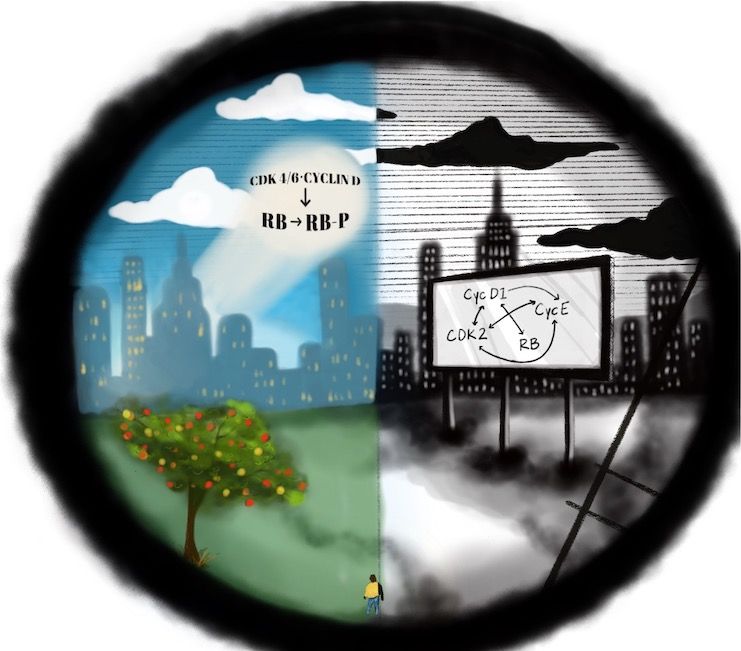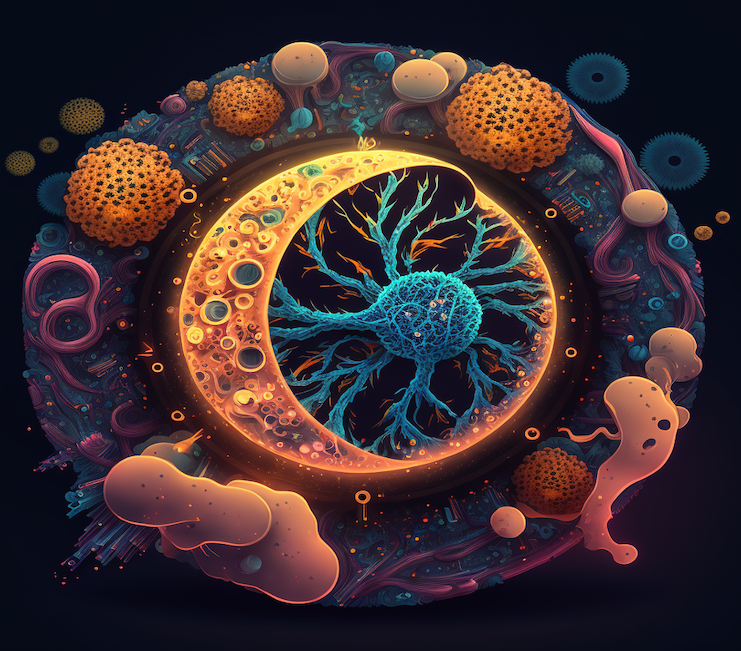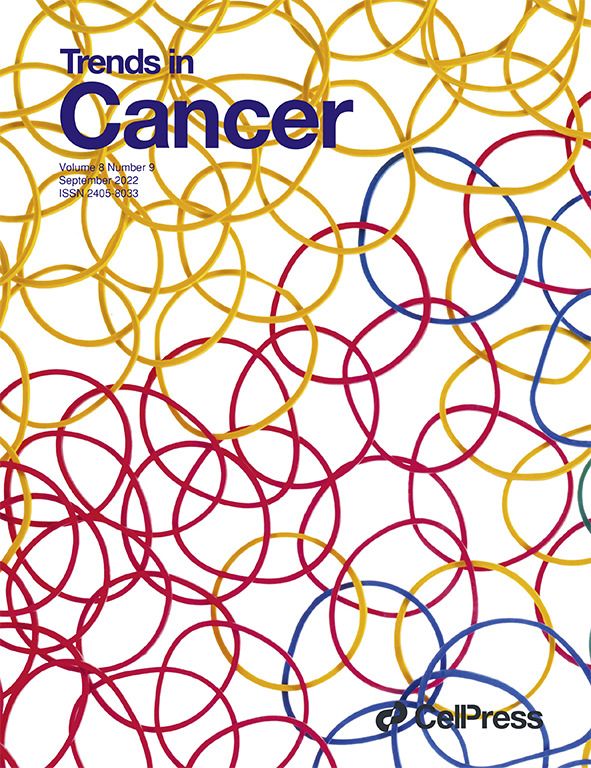Cancer is a disease that continues to be a complex and ever-evolving challenge. One of the key factors contributing to the difficulty of treating cancer is its inherent heterogeneity.
Within a tumor, cancer cells exhibit significant diversity in their genetic makeup, functional characteristics and behavior. This heterogeneity is evident in the context of the cell cycle – the tightly regulated process governing how cell growth divides.
Traditional cancer therapies often target rapidly dividing cells, aiming to halt their proliferation and induce cell death. However, the presence of a heterogeneous population of cancer cells with varying cell cycle dynamics poses a significant hurdle.
A hand-drawn rendition contrasting the canonical “eutopic view” of the cell cycle vs. the complexity observed in human cancers, created by lab member Proggya Paromita.
Image generated via artificial intelligence with the prompt “cancer cell cycle dystopia,” created by lab member Martin Emmons using the software MidjourneyTM.
While some cancer cells may be highly proliferative and vulnerable to treatment, others may be in a dormant or quiescent state, resistant to conventional therapies. The Witkiewicz-Knudsen Lab has termed this significant diversity in the process “cell cycle dystopia.”
The Witkiewicz-Knudsen research team is using a combination of genetic screens, functional studies, and advanced tissue imaging approaches to delineate cell cycle heterogeneity and new approaches to treat cancers based on the underlying circuitry in each tumor.
See the science
- Witkiewicz AK, et al. Cancer cell cycle dystopia: heterogeneity, plasticity, and therapy. Trends Cancer. 2022 Sep;8(9):711-725. doi: 10.1016/j.trecan.2022.04.006.
- Knudsen ES, et al. CDK/cyclin dependencies define extreme cancer cell-cycle heterogeneity and collateral vulnerabilities. Cell Rep. 2022 Mar 1;38(9):110448. doi: 10.1016/j.celrep.2022.110448.
- Knudsen ES, et al. Cell Cycle and Beyond: Exploiting New RB1 Controlled Mechanisms for Cancer Therapy. Trends Cancer. 2019 May;5(5):308-324. doi: 10.1016/j.trecan.2019.03.005.
Contact the Witkiewicz-Knudsen Lab
Department of Molecular and Cellular Biology
Roswell Park Comprehensive Cancer Center
Elm and Carlton Streets
Buffalo, NY 14263


